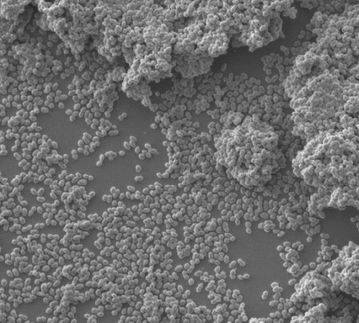Antibiotic treatment increases the severity of asthma in young mice
Advertisement
Treatment with the antibiotic vancomycin increases the severity of allergic asthma in young mice, researchers in Canada have revealed in a new study published in EMBO reports. The results are consistent with the “hygiene hypothesis” that links the loss of beneficial bacteria in the community of microorganisms in the gut, collectively known as the microbiota, to the onset of asthma.
“We administered antibiotics to mice of different ages to determine if there was a link between the makeup of the microbial community in the gut and the extent of experimentally induced allergic asthma,” said Dr. Brett Finlay, Professor at the Michael Smith Laboratories at the University of British Columbia, Canada. “Treatment of young mice with the antibiotic vancomycin reduced the diversity of microbes in the gut, significantly altered the composition of the bacterial population, and increased the susceptibility of young animals to experimentally induced asthma.”
Many studies have suggested that the colonization of the gut early in life plays a substantial role in shaping the development of the immune system. More than 100 trillion bacteria, including more than 1000 bacterial species, colonize the human gut. If the balance of the microbial community in the gut is disrupted, the ability of the body to resist the onset of disease may be compromised.
Dr. Finlay remarked: “Although the precise link between the immune responses in the gut and lung remain unclear, we think that vancomycin selects for a community of microbes in the gut that somehow disrupts the inflammatory and regulatory immune responses at the two different sites. In mice, the restructuring of the intestinal microbial population during infancy after antibiotic treatment is enough to lead to exacerbated asthma.”
The scientists used genome sequencing of the microbial population to reveal the diversity of the microbial community. The severity of asthma was assessed by different molecular assays and direct examination of lung tissue.
Said Finlay: “Our results confirm that the early months of life are a crucial time in which the gut microbial community may influence key immunological events that alter the sensitivity of the body’s immune system to the response to allergens.”


















































